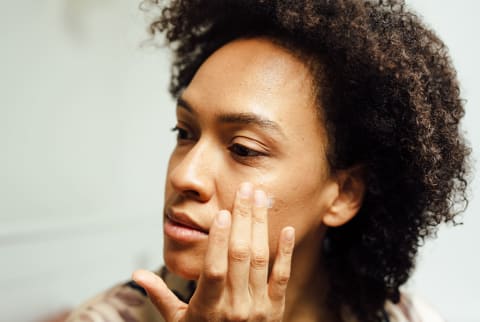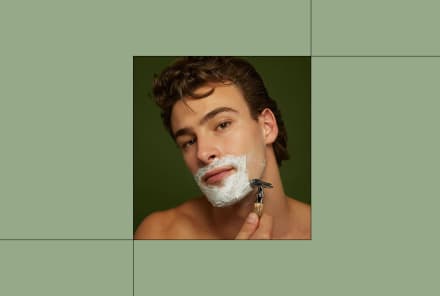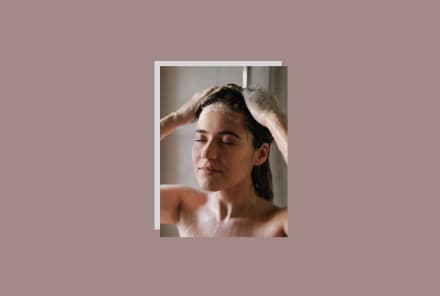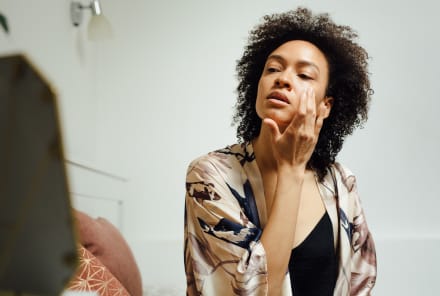Advertisement
3 Questions A Dermatologist Gets Asked The Most, Answered


As a beauty editor and reporter, dermatologists are my north star. I turn to their expertise to help me make sense of skin care trends, fact-check myths, help me understand the inner workings of the skin, and so much more.
Thanks to social media, they’ve become the trusted sources for the masses too. Pre-social media, getting advice from a dermatologist used to require an appointment, which can be challenging to snag—if not impossible.
But now, all it takes is a quick comment on a TikTok post or Instagram Reel to get top derms’ best tips and tricks.
Recently I asked one of mindbodygreen’s trusted sources and content creators Shasa Hu, M.D., board-certified dermatologist and Cosmetic Director Skin of Color Division at the University of Miami, about what questions she gets asked most on social media. Here, those questions—and more importantly, her answers.
Question: Why should I start using retinol?
Retinol is often described as the “gold-standard” ingredient for “anti-aging” effects. In fact, it’s one of the most recommended ingredients by dermatologists, whether that’s prescription-strength or OTC, for those dealing with premature aging. (It can also be used to treat acne, but for the purposes of this question, we’re keeping it to aging.)
This all begs the question: if you’re using it to address signs of aging, then at what age is appropriate to start using it?
“There’s no hard line answer on when to start retinol,” she says. And she’s right—there is no age you need to start using any skin care ingredient or product. Your skin care is your choice! But if you’d like some best practices, “typically starting in your 20s to 30s will give you the best long-term results. [But] that it’s never too late to start retinol.”
This is because bodies start losing collagen at some point during the late 20s. (The exact moment this shift starts is different for everyone, due to a variety of factors from genetics to lifestyle.) Retinol has the ability to upregulate retinol production1, so starting in your 20s or 30s will help buffer this decline. However, no matter when you start it, you’ll still get the collagen-boosting benefits, so start it whenever it feels right for you.
And an important caveat: “Keep in mind that retinol is not for everyone,” she says.
Related read: The best derm-approved tips on how to use retinol
mbg POV:
Question: Do I really need sunscreen if I work in an office all day?
Sunscreen use—or in some cases, non use—is an oddly contested topic in the beauty space. To start, surveys indicate that not many folks actually adhere to regular use. For example, only 12% of men and 29% of women say they “always” wear sunscreen when they go outside, according to data from the CDC2.
Another survey conducted by the journal Archives of Dermatological Resources3 found that only 13% of respondents said they use sunscreen daily.
One area of confusion folks have about application and daily wear is if they need it on days they’re not as readily exposed to UV rays—like for example, when in the office.
“Yes! You need sunscreen every single day regardless of your plans for that day,” says Hu. This is because even if you’re not outside all day long, you'll still get UV exposure throughout the day, such as during commutes or when sitting by a window.
And this cumulative exposure adds up: “Because long-term data has shown that when you wear sunscreen everyday versus using sunscreen only when you need it you have about 26% less aging after four and a half years4,” she says.
Related read: The best advice to help you (actually) wear sunscreen daily
Question: Isn't “natural” or “organic” skin care better for your skin?
Unfortunately, there’s a huge misconception that equates “chemical” with “toxic.” This comes from a lack of understanding of what a “chemical” is.
“While ‘natural’ and ‘organic’ sound a lot more pleasing than synthetic or chemical, if you look at the ingredient list most of the ingredients are chemicals,” says Hu. Yes, all product formulas are made up of chemicals—such as vitamin C, fatty acids, and even water.
And while we believe natural and organic ingredients can be great additions to a formula, they’re not inherently better: “When products are labeled as natural or organic I tell my patients that poison ivy is also very natural and organic,” she says.
Essentially this is a topic that requires a whole lot of nuance—and not jumping to quickly to judge an ingredient or product as “bad,” “dirty,” or “toxic.”
As Hu says: “The bottom line is to just be smart about ingredients.”
The takeaway
If you want to get high-quality, factual information about skin care, dermatologists are the best sources. The good news is that now, thanks to social media, you can get their insights without having to book an appointment.
Overall, we definitely are big advocates of finding trustworthy sources to follow on social media. While getting tips from influencers can be fun, they’re not experts in the science of skin health.
Be sure to follow several credentialed content creators as well, so you’re getting well-rounded, thoughtful advice.
Watch Next
Enjoy some of our favorite clips from classes
Enjoy some of our favorite clips from classes
What Is Meditation?
Mindfulness/Spirituality | Light Watkins
Box Breathing
Mindfulness/Spirituality | Gwen Dittmar
What Breathwork Can Address
Mindfulness/Spirituality | Gwen Dittmar
The 8 Limbs of Yoga - What is Asana?
Yoga | Caley Alyssa
Two Standing Postures to Open Up Tight Hips
Yoga | Caley Alyssa
How Plants Can Optimize Athletic Performance
Nutrition | Rich Roll
What to Eat Before a Workout
Nutrition | Rich Roll
How Ayurveda Helps Us Navigate Modern Life
Nutrition | Sahara Rose
Messages About Love & Relationships
Love & Relationships | Esther Perel
Love Languages
Love & Relationships | Esther Perel

















